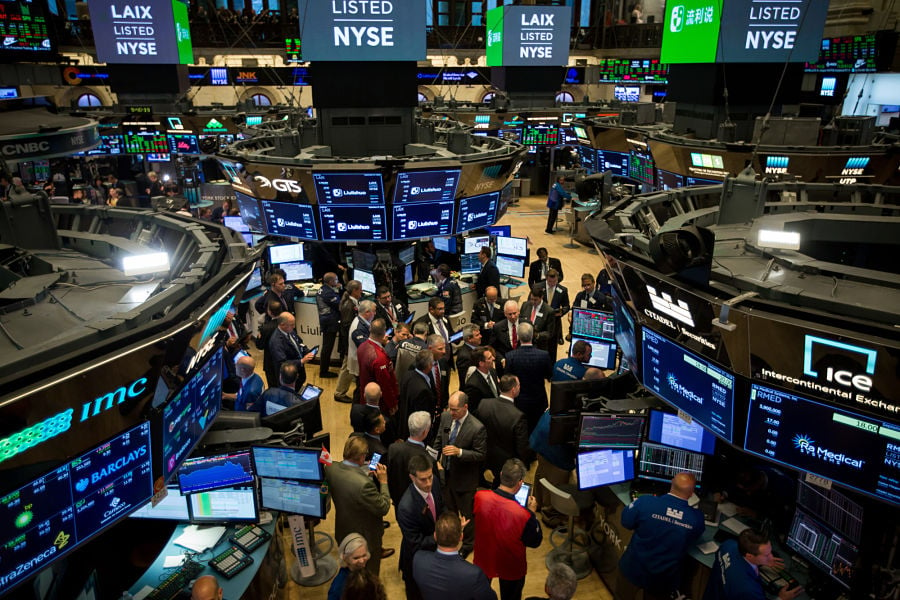

The S&P 500 sank the most since December 2008, the Dow Jones Industrial Average tumbled 2,000 points and small caps lost more than 9% as investors fled risk assets with virus cases surging and the Trump administration so far unwilling to step in to soften the expected economic blow.
In a dramatic day across assets globally, all but nine S&P 500 companies were lower Monday, with energy producers routed by 20%. Exxon Mobil and Chevron were down more than 12%. Banks lost 11%, with an ETF that tracks regional banks had for its worst day since 2009. Apple sank 7.9% and Dow Chemical plunged 22%.
“The market was poised and vulnerable to this volatility and crude oil has just exacerbated it,” said Randy Frederick, vice president of trading and derivatives for Schwab Center for Financial Research. “The coronavirus itself has been the main cause of the correction, but now it’s being exaggerated even further.”
President Donald Trump and his economic team will weigh measures later Monday to contain the fallout from coronavirus and a sudden crash in oil prices, with funding for a temporary expansion of paid sick leave and aid for battered U.S. energy producers among possible steps.
“When there’s panic, there tends not to be accurate pricing of assets,” said Kristina Hooper, Invesco’s chief global market strategist. “The sell-off today to me is emblematic of that. It really is a knee-jerk reaction to what’s happened over the weekend."

Most firms place a limit on advisors’ sales of alternative investments to clients in the neighborhood of 10% a customer’s net worth.

Those jumping ship include women advisors and breakaways.

Firms in New York and Arizona are the latest additions to the mega-RIA.

The agent, Todd Bernstein, 67, has been charged with four counts of insurance fraud linked to allegedly switching clients from one set of annuities to another.

“While harm certainly occurred, it was not the cataclysmic harm that can justify a nearly half billion-dollar award to the State,” Justice Peter Moulton wrote, while Trump will face limits in his ability to do business in New York.
Orion's Tom Wilson on delivering coordinated, high-touch service in a world where returns alone no longer set you apart.
Barely a decade old, registered index-linked annuities have quickly surged in popularity, thanks to their unique blend of protection and growth potential—an appealing option for investors looking to chart a steadier course through today's choppy market waters, says Myles Lambert, Brighthouse Financial.
